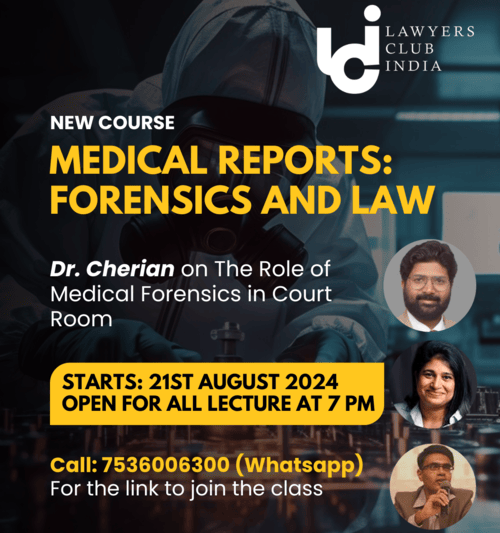Case title:
X v. Y
Date of Order:
18th September 2023
Bench:
Hon’ble Mr. Justice Anil K. Narendran
Hon’ble Mrs. Justice Sophy Thomas
Parties:
Appellant/ Petitioner: ‘A’
Respondent/Respondent: ‘R’
SUBJECT:
The Hon’ble High Court of Kerala (hereinafter referred to as ‘the High Court’ or ‘the Court’) dealt with the case arising out of
the impugned judgment of the Family Court in Attingal, dismissed the plea for divorce by the appellant and set aside the awarding compensation to the child.
IMPORTANT PROVISIONS:
Section 13 of the Hindu Marriage Act, 1955 (HMA)
OVERVIEW:
Appellant ‘X’ and Respondent ‘Y’ got married in 2008 as per Hindu customs and rites. X alleged that Y was discourteous and refused to consummate her marriage. X realized that she was having an illicit relationship with her brother.
According to X, Y left her matrimonial home and returned a month later, claiming she was pregnant. X refused to accept the child as the marriage had not been consummated. X informed that Y confessed to her illicit relationship and stated that she only got married to let her child have a legitimate father and promised to file for mutual divorce after her delivery and never claim paternity of her child on him.
X filed for divorce on cruelty grounds when Y did not keep on her promise and filed IA no. 2242(a) of 2012 for a DNA test to prove that he was not the biological father of the child.
The DNA report Ext. C1 showed that X was the biological father and Y the biological mother of the child.
Y claimed that allegations made against her were false and it was the interventions of X’s mother creating issues. Y claimed to be a loving wife who had a child out of lawful wedlock and sought to lead a peaceful life with X.
The Family Court of Attingal in its original petition observed that allegations made against Y were not proven by X and rejected X’s divorce prayer but granted a decree for judicial separation and awarded the child, who was not a party to the proceedings, a compensation of Rs. 10 Lakhs from X for putting the child through mental trauma for denying paternity.
Aggrieved, X filed for appeal against the judgment of the Family Court, seeking a decree for divorce and dismissal of the compensation amount.
Aggrieved by the decree of Judicial Separation, Y filed for appeal.
ISSUES RAISED:
Whether there is any illegality, irregularity, or impropriety in the impugned judgment to warrant the Court’s interference?
Can the Court grant decree for Judicial Separation if grounds for divorce under section 13(1)(ia) are not proven?
ARGUMENTS ADVANCED BY THE APPELLANT:
Y’s illicit relationship and pregnancy were cruelty meted out against X.
The marriage was irretrievably broken and divorce should be granted.
The Family Court was unfair to award the child who was not a party to the proceedings a compensation amount of Rs. 10 Lakhs without a prayer, making the judgment illegal and unjust.
ARGUMENTS ADVANCED BY THE RESPONDENT:
Allegations made by X against her were false and baseless and a result of the constant intervention of X’s mother.
X could not make a divorce case and thus the Family Court should not have granted a decree for judicial separation as a consolation prize.
Adultery was not taken up as grounds for divorce by X and the adulterer was not even made party to proceedings.
JUDGEMENT ANALYSIS:
It was strange that X filed for divorce under section 13(1)(ia) on cruelty grounds alone and not on the grounds of adultery, despite his allegations against Y of adultery and then not making adulterer party to proceedings.
In IA no. 2242(a) of 2012 filed by X, it stated that X had ‘no conscious sexual relationship’ with Y. His allegations make him look illogical as X could have specifically led with the fact of the marriage not having been consummated at all. Y, in contrast, readily agreed to the DNA test and filed an affidavit to that effect.
As per section 13A of HMA, it becomes clear that if a party seeking divorce is able to prove the grounds, they are eligible for divorce but the court may upon its discretion grant a decree of judicial separation instead if, in the court’s opinion, a there is a chance of reconciliation.
The Court also X cannot cite irretrievable breakdown of marriage as grounds for divorce over the long period of separation caused by him, upholding the observations of the Apex Court in the case of Trojan and Company v. RM NN Nagar Chettiar and Bharat Amratlal Kothari v. Dosukhan Samadkhan Sindi.
The Court allowed X’s appeal in part and dismissed the divorce plea, while Y’s appeal was allowed in full.
CONCLUSION:
The Court relied on the judgments of Snigdha Chaya Devi. V. Akhil Chandra Sharma, held that a decree for judicial separation cannot be granted when grounds for divorce are not proven as under section 13 of HMA. The Court set aside the decree of judicial separation and the compensation awarded to the child and directed X to pay costs to Y in both cases and disposed of the costs to wife accordingly.








